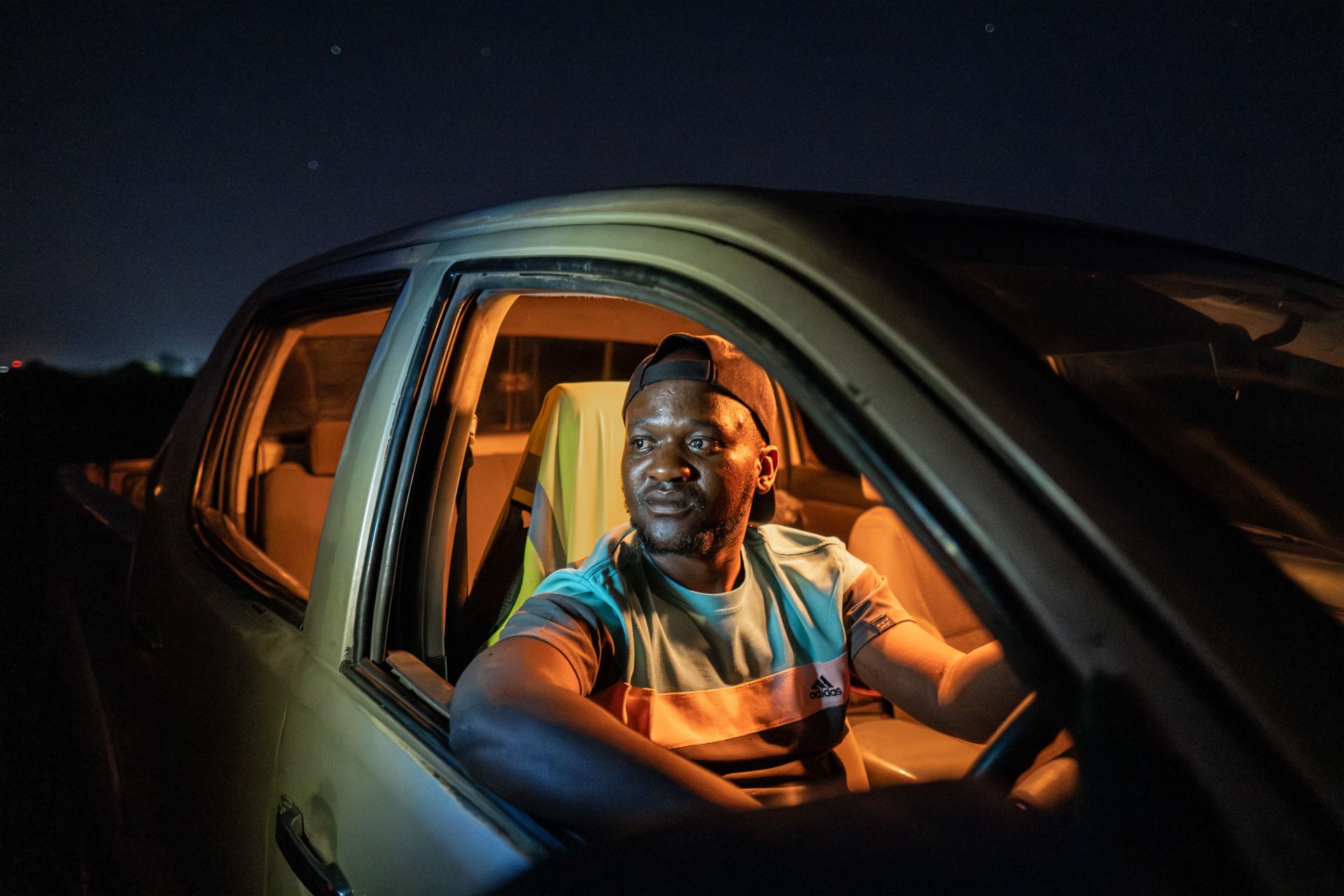Chamunolwa Jimayi (29), a driver for the Elephant Response Team, is working hard to serve his community. The organization has tried to hire a second driver to give Jimayi a break, but none of the candidates have returned after a trial shift. Livingstone, Zambia.
In Livingstone, Zambia, a succession of failed rainy seasons and human encroachment onto land traditionally used by elephants have led to a rapid increase in human-wildlife conflict over the past few years. During the dry season, elephants enter Livingstone in search of food, raiding gardens, vegetable patches, and fruit trees. Homes are damaged, livelihoods lost.
When elephants are surprised, harassed or confronted, the situation can quickly turn dangerous. In 2024, at least eleven people were killed by elephants in the town. In response, residents deploy a range of deterrents – reflector fences, firecrackers, and noxious “chili-bricks”, yet none of these measures are entirely effective.
Launched in 2017 by the Conservation and Tourism Society, a local non-profit, the Elephant Response Team works to keep the peace between people and elephants. During the dry season, the team of volunteers sometimes receives 30 calls a night and deals with herds of up to 80 elephants. They rely on little more than flashlights, a battered Toyota pickup truck, and a deep understanding of elephants to keep their community safe. When approaching elephants, the team's first move is to talk to them, gently encouraging them back toward the national park. If that fails, they use the Toyota like a farmer might a sheepdog, revving the engine and sometimes approaching to within a few feet of the elephants to corral them out of harm’s way. The job requires great skill and nerves of steel. In the latter half of the dry season, the team eats on the go and rarely sleeps. And there's little end in sight. With climate change, human populations growing and encroaching into animal habitats across Southern Africa, and elephant numbers on the rise in several countries, human-wildlife conflicts seem likely to increase in the years to come.
Are you a photographer and/or passionate about press freedom? Sign up for our newsletter to stay updated on our annual contest and to hear about exhibitions near you.

